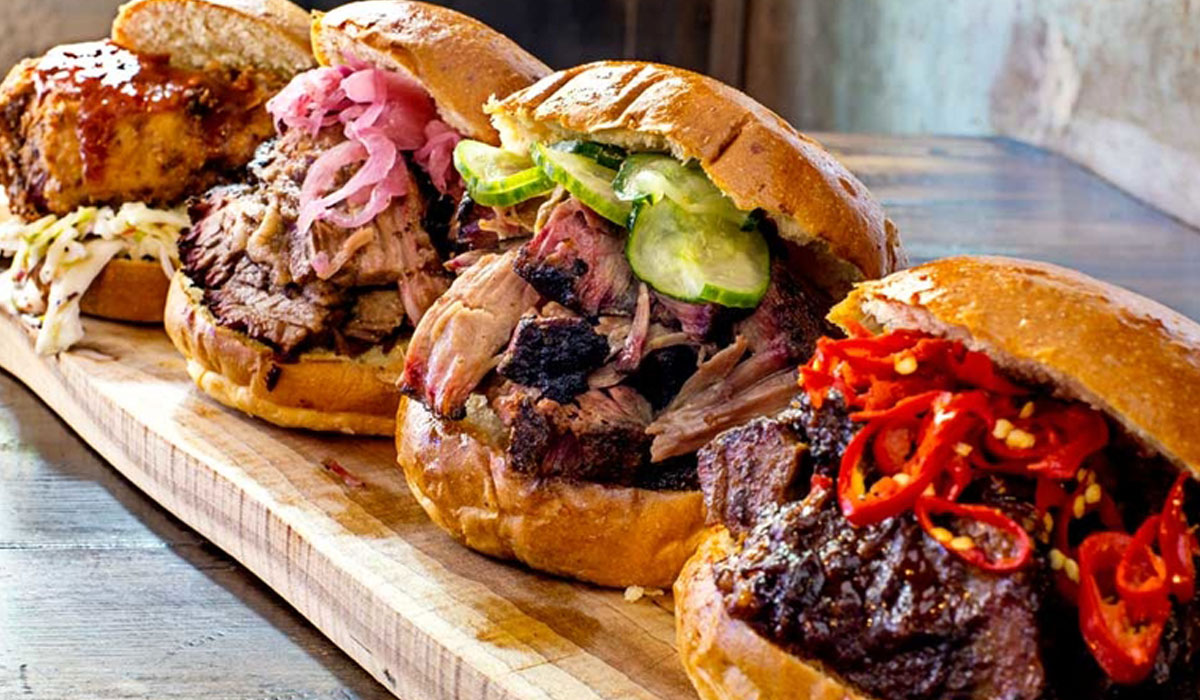Eulogizing the trends of any given year typically happens in the last few weeks of December, but I’ll wager that 2019 will be remembered for two widespread phenomena: an overly sensitized social atmosphere where the fear of offending has stifled honesty, followed closely by an assault on eating meat.
First, a disclosure: I am the co-founder of the Mighty Quinn’s Barbeque restaurant group, and we sell a lot of meat, so if there was ever an agenda in attempting to shed light on the misinformation of the “to meat or not to meat” discussion, I am as corrupt as they come.
I have no interest in persuading people against veganism, but it’s important to better understand where the “meat is unhealthy” message came from, and why it’s so flawed. I also want to address the hypocrisy of how processed, genetically modified ingredients are the basis for popular meat-substitute products marketed as a healthier alternative. Environmentally friendlier, yes, but not healthier.
READ MORE: Mighty Quinn’s wants to lead a barbecue movement.
Nutritional studies are almost always observational and not clinical.
Almost 80 percent of our nutritional research comes from observational studies rather than randomized clinical trials, largely because clinical trials are incredibly expensive. When you read that consuming food abc increases your chance of xyz disease by 20 percent, this is often based on the conclusions of surveys.
It’s basically the equivalent of calling up a bunch of your friends, asking what they eat in a year, and analyzing what ailments they suffer from. You then draw your own conclusions on cause and effect based on the overlap of diet and ailment data. But there are always other forces at work beyond diet when it comes to health.
Chris Kresser, a New York Times best-selling author, health coach, and practitioner, discusses this issue at length in his article about why people should incorporate healthy meats into their diet.
Kresser points out why the epidemiological (observational) approach is flawed in three key points:
- “Most observational studies employ “memory-based assessments” (i.e., questionnaires), which rely solely on a person’s recollection of what they ate.”
- When someone engages in a behavior that’s perceived as unhealthy, they are more likely to engage in other behaviors that are perceived as unhealthy and vice versa.”
- “In nutrition, relative risks are often so low that they are indistinguishable from chance.”
Kresser’s second point is extremely important. Surveying a specific segment of the population, such as vegans versus the general population, automatically corrupts the survey, because people who follow rigid dietary guidelines are also more likely to work out, be active and avoid unhealthy foods that have nothing to do with meat (sugary sodas, heavily processed foods, preservatives, etc). So many of these observational studies are simply comparing healthy to unhealthy people, regardless of what they’re eating.
The media has embraced a lot of these observational studies to create headline-grabbing warnings. They are fraught with inaccuracy and misleading conclusions.
Meat substitutes are a step backward in our progress toward whole-food eating.
Trading grass-fed meat for processed products with GMO ingredients seems like an irrational decision. Soy leghemoglobin (SLH), a derivative of genetically modified yeast, is the key ingredient in the widely popular Impossible Burger. From what limited testing that has been done, in rats, SLH can cause changes in the way the body gains weight that couldn’t be explained, altered blood chemistry, and a decrease in red blood cells that may indicate damage to bone marrow, among another not-so-favorable effects.
If the choices are a processed faux-meat patty versus a fast-food burger, I’m not sure which is worse. But if the popularity of processed substitutes are gaining traction based on the perception of health, this seems regressive to me. They contain about five times the sodium of meat, and the average American is already consuming twice the ideal limit of sodium recommended by the American Heart Association.
Other meat substitutes with seemingly “cleaner” labels are still highly processed. In the same way that vegetable oil is theoretically made from vegetables, expeller and solvent oil extraction is not exactly the same thing as cold pressed olive oil. Although they both can be generalized as plant-based oils.
Getting away from the pure and simple guidelines of whole-food eating means more processed and genetically-modified diets, which is a step in the wrong direction. But that’s not so clear when misleading information against eating meat is so pervasive.
The health benefits of nutrient-dense meat are many.
Red meat is packed with vitamins, minerals, antioxidants, and other healthy nutrients, which makes it incredibly nutritious. Some of these nutrients aren’t available in plant-based foods, like B12, creatine and carnosine. These are positive drivers of brain and muscle function.
Here, we’re talking about grass-fed naturally raised (without hormones or antibiotics) meat, not factory farmed production, not processed meat, not meat with additives like nitrates or nitrites. This stuff is now widely available, but is often more expensive at the grocery store. It’s worth the extra cost.
We are just a few hundred years into our enlightened period of understanding the complex biological and chemical reactions taking place in our bodies. To say we’ve figured it out will seem as absurd 100 years from now as doctors prescribing cigarettes to asthma patients in the 1800s. (Yes, that was a thing.)
It’s important to recognize how much we don’t know to avoid dogmatic diet guidelines and be open to an evolving narrative around health. Allow me to get a little sensational here to make a point. There is strong evidence that eating meat had a formative impact on the evolution of humanity. The availability of a nutrient-dense food source in the form of meat was a meaningful cause of brain growth that evolved us from primates to homo erectus and on to humans in socialized communities.
Yes, that sounds a bit grand to put out there in support of an omnivorous diet, but remember this: What it means to be human has been playing out for a few million years, and these niche branches of dieting and synthesizing plant proteins have only been around for about 60-70 years.
We need to accept that “healthy eating,” when discussed on a national scale, is aspirational.
Raising animals and vegetable farming have both caused significant ecological problems. It has been easier to vilify the animal-raising side because of its more obvious connection to life and the horrific evidence of animal cruelty. But there’s also a lot of collateral damage in commercial vegetable farming. Across the board, industrial farming practices need to change for the better.
We’re still far from a utopian end-point when plants can completely meet our protein and nutrient needs, with no environmental shock waves.
In the same way, we haven’t reached our goal of 100% hormone-free, antibiotic-free and humanely raised livestock. Yet it’s possible— a return to natural animal farming can be readily found outside the U.S. (and right here at home with organizations like Belcampo).
If we could all hunt the prairie for wild game this problem wouldn’t exist, but humanity’s scale has other plans. Categorizing our current production system as a failure in the pursuit of idealism has created the meat-substitute market. It seems reactionary. We should be mindful that our paths are aspirational. We’ll get there. Bleeding vegetable burgers may not be the answer.
Maintaining goals and a meaningful pace toward progress is good. Vilifying the opposing mindset accomplishes little except accelerating divisiveness and exclusion.
The solution is voting with your wallet.
Consumer demand will continue to lead the change through the supply network. Until the day comes where empirical data says otherwise, healthy eating, the way we’ve eaten for hundreds of thousands of years before the science labs, remains the best bet.
The more we understand about our production systems and how they can improve, the more ammunition we have to demand better, healthier products. This will drive innovation, which will create healthier, more responsible food options—whether you choose to eat meat or not.
Micha Magid is the co-founder of Mighty Quinn’s Barbeque.













